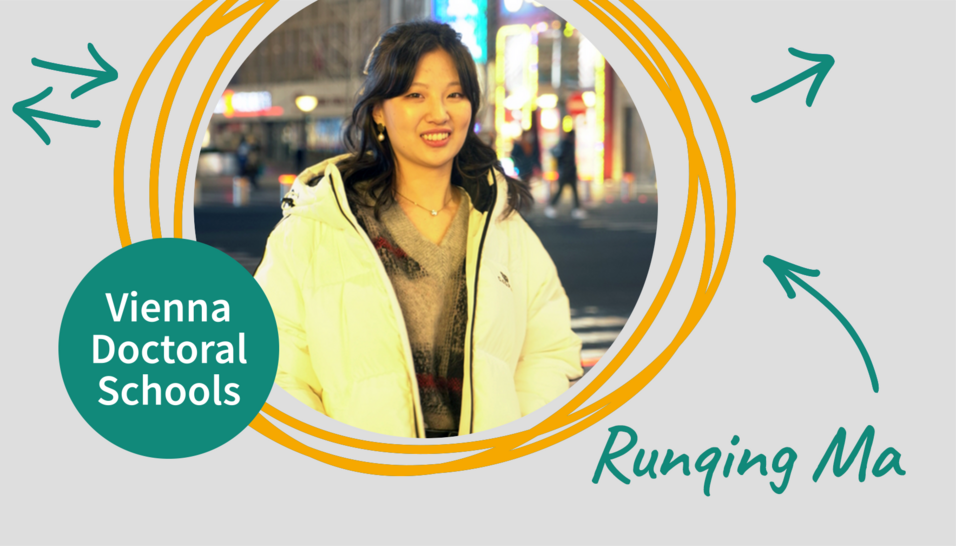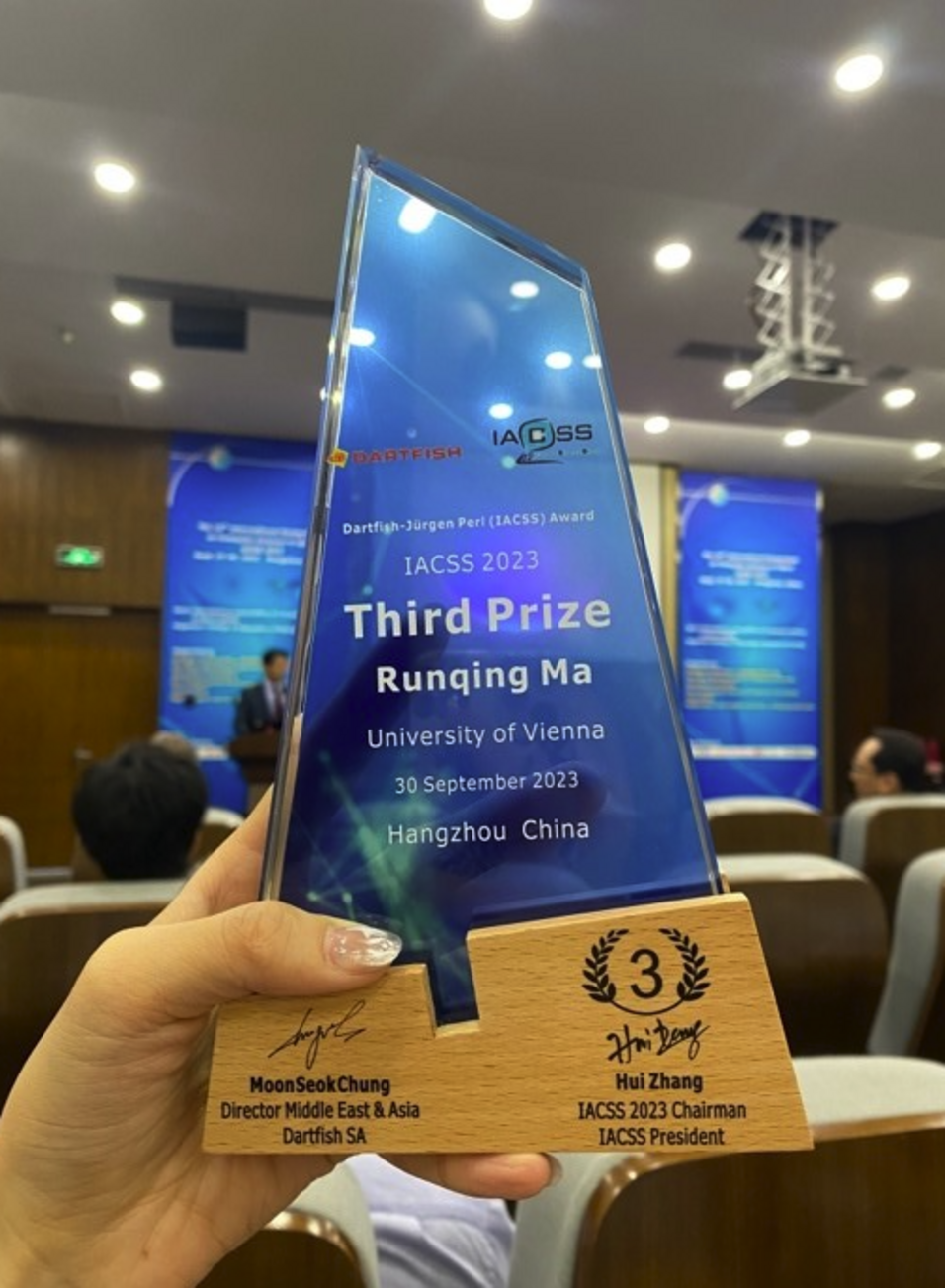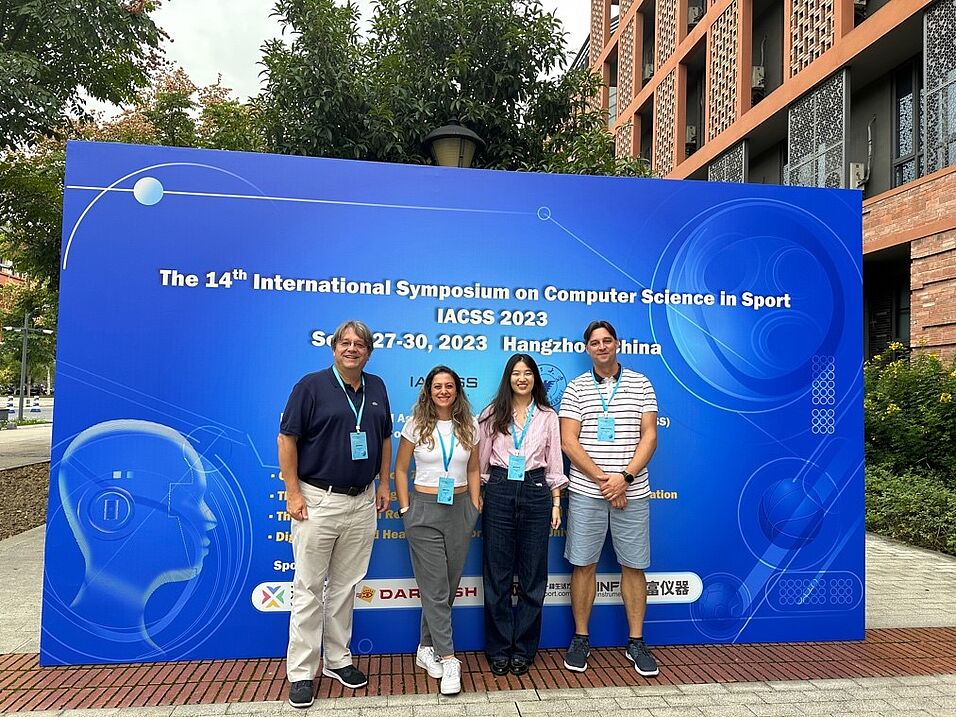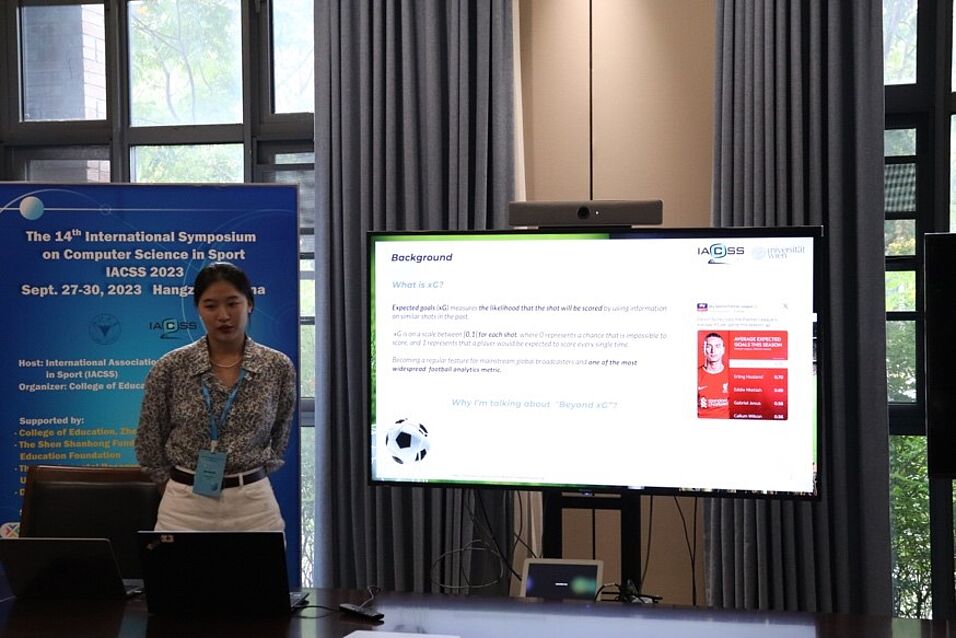- Period of stay: 27 September - 30 September
Travel report:
In late September, I had the privilege of attending the 14th International Symposium on Computer Science in Sport, known as IACSS 2023, in Hangzhou, China. Thanks to the support of the VDS PhaNuSpo at the University of Vienna, I was able to have such an unforgettable and invaluable academic experience, allowing me to present my research, network with experts and make valuable contacts.
My oral presentation, entitled "Beyond xG: Statistical Analysis of Attacking Performance in World Cup 2022" was part of my ongoing PhD research. Despite the initial nervousness, the excitement of sharing my ideas and brainstorming with colleagues made me immensely enlightening. The feedback received provided valuable insights and contributed significantly to my learning and development.
Throughout the conference, in addition to the enriching academic discussions, one particularly impactful session was entitled "Women in IACSS: Empowering the Future". This session not only heightened my awareness of the power and potential of women, but also instilled in me a strong belief that we need to amplify our voices and encourage more girls to contribute more in these areas.
And fortunately, I am delighted to share that I have won the third prize in the Young Scientist Awards. This recognition is a source of great pride for me, and it inspires me to make more progress in the future step by step. I extend my gratitude for the support and encouragement from my supervisors Prof. Baca and Dr. Juliana and our PhaNuSpo doctoral school, which played a crucial role in this achievement.
Overall, attending the 14th International Symposium on Computer Science in Sport conference was an enjoyable experience. I am grateful for the travel grant provided by the VDS PhaNuSpo, allowing me the opportunity to participate fully in this enriching conference.




